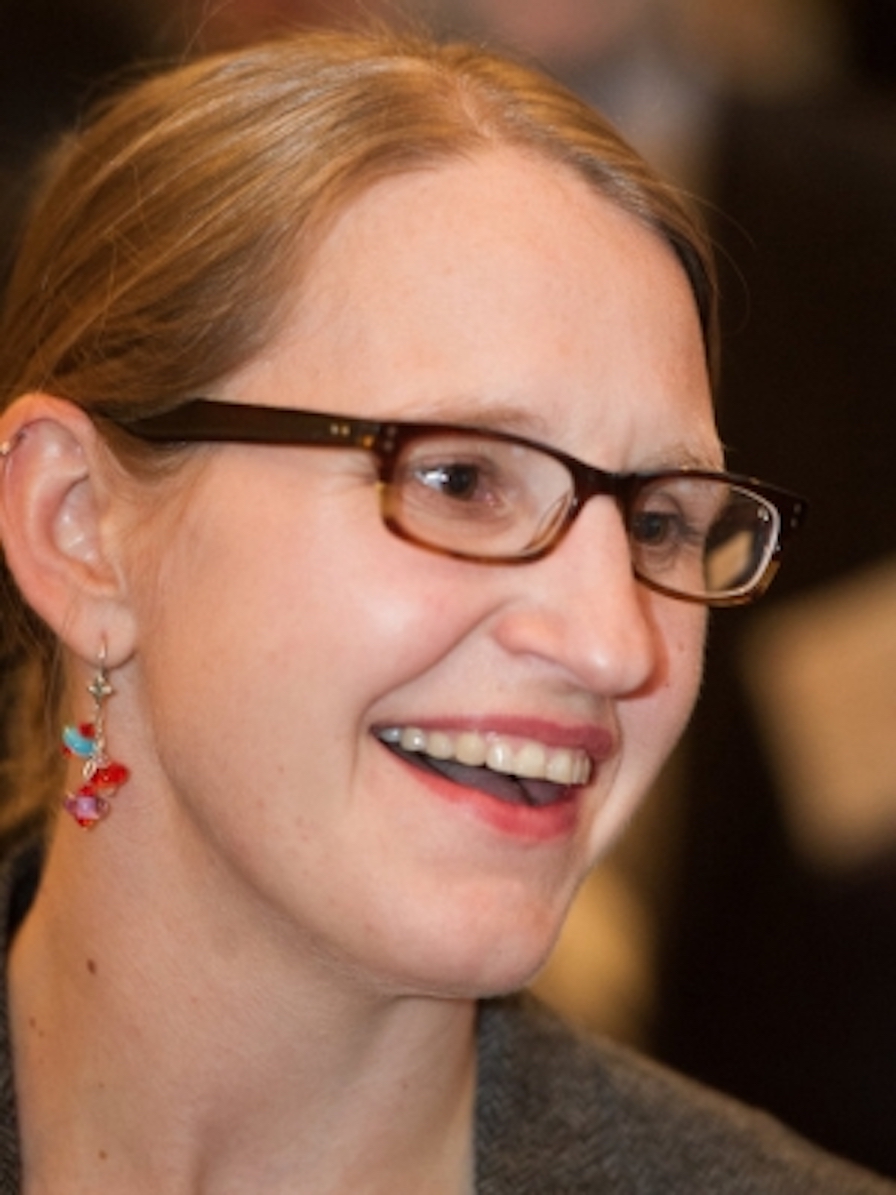Challenge Cancer 2020 is our visionary initiative to cut cancer rates in Maine by 2020. Our goal for a Maine less burdened by cancer requires active participation from people and communities across the state. Our success depends on inviting key stakeholders to the table to share strategy, tactics, and experience.
We recently sat down with Caroline Zimmerman, Program Manager for Child Health at the Center for Health Improvement at MaineHealth. Caroline also serves on Maine Cancer Foundation’s Board of Directors, co-leads the prevention and early detection workgroup, and has participated in several grant review committees.
--

Upon first brush, art history might seem a far leap from public policy. Caroline Zimmerman begs to differ. As an undergraduate at Bowdoin College, she began to study art history, and was quickly interested to learn about the social and political environments in which artists create their work. Some of the most famous works of art were created in response to social or political issues occurring at the time. After years working in arts nonprofits, Caroline went back to school and received a Master’s in Public Policy from the Heller School at Brandeis University.
The thread which began in her study of art history carried through to the broader arch of her graduate studies. “Public policy aims to understand the history and the context of how our social and public programs have been developed, and looks at the structures that exist to make change at local, state, and national levels,” said Zimmerman. She focused on child and family policy, building expertise in the social safety net - which includes programs that aim to serve those most in need.
She started by asking a big question: how do you increase access to health care services despite the countless disparities which exist? Caroline spent seven years at Maine Primary Care Association tackling the issue head-on. Her work involved increasing access to insurance coverage for Mainers and improving statewide cancer screening rates. “I began to understand the barriers to health care access by traveling to communities across the state and talking with health care professionals about the people they serve,” she said. She learned about some of the unique challenges facing Maine’s rural communities, as well as individual and structural barriers that exist for many people that limit their ability to seek care in a timely manner.
Caroline recently accepted a new position at MaineHealth to improve child and adolescent immunization rates at MaineHealth practices and affiliate sites. The vaccine schedule is designed to protect children and adults when they are most vulnerable to certain diseases. “There can be a false sense of security that certain diseases are gone, but really they’re kept at bay because we have been so successful in getting people immunized,” she mused.
One of the most exciting aspects of her new job is increasing Human Papillomavirus (HPV) vaccination rates for adolescents. “Cancer is the number one killer in Maine. It’s hard to wrap your brain around the fact that [the HPV vaccination] prevents cancer,” said Zimmerman. “There is even a new recommendation out for boys and girls - they only need two [HPV vaccination] shots if they start the series at the recommended age of 11 or 12.” Over 90% of cervical cancers are attributed to HPV. Emerging research shows that certain head and neck cancers are also caused by HPV, disproportionately affecting men.
Caroline paints with a different brush than her early years at Bowdoin, but her curiosity and desire to understand the world around her remains steady. She credits Maine with providing the perfect backdrop for her personal and professional life. “We have the mountains and the ocean, what could be better?” The only thing slightly better, she quipped, is improving health care access for everyone. “I am passionate about the opportunity to improve access for folks no matter where you live and what your background is,” she said. “Cancer doesn’t care if you have the means to take care of it or not.”
Maine Cancer Foundation is bringing you facts and stories about HPV and cervical cancer throughout the month of June. Keep an eye on the blog and follow us on social media (Facebook & Instagram) for the latest information.
Fast Facts About HPV:
- The HPV vaccine is for both boys and girls.
- Less than half of Maine boys and girls have been vaccinated against HPV. [Note: 51% of girls have been vaccinated, 40% of boys have been vaccinated]
- Every year in the United States, 31,000 women and men are diagnosed with a cancer caused by HPV infection. Most of these cancers could be prevented by HPV vaccination.
- The Human Papillomavirus (HPV) is the leading cause of cervical cancer – one of the leading causes of cancer death for women in the US.
